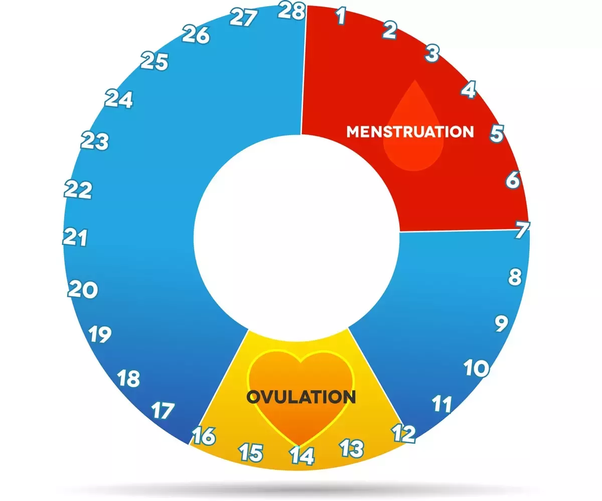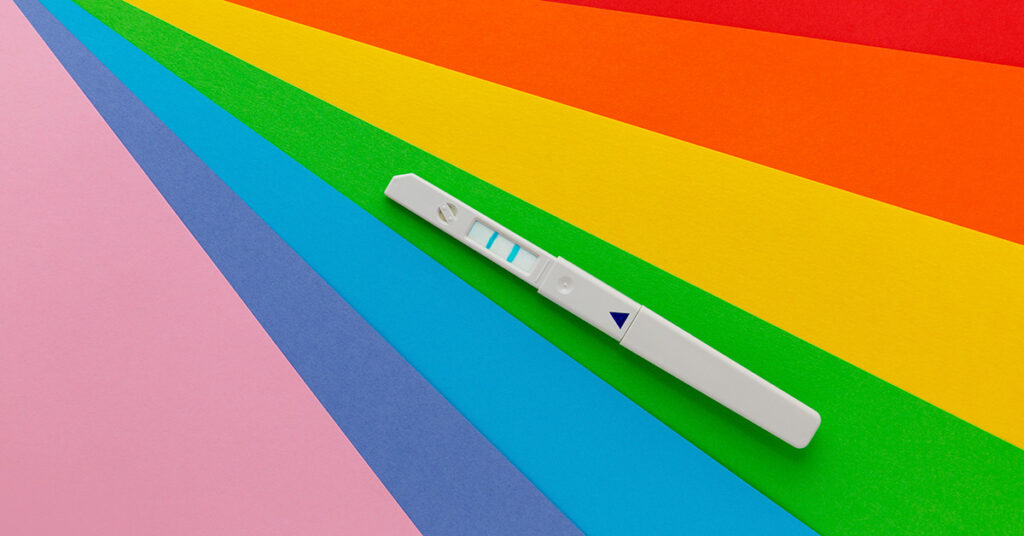Understanding when it’s possible to get pregnant is important whether you’re trying to have a baby or want to avoid an unplanned pregnancy.
There are many myths and unanswered questions around the topic. Keep reading to learn more.
Is it possible to get pregnant outside my fertile window
Your “fertile window” refers to the time in your cycle when you are most likely to get pregnant. In a typical menstrual cycle of 28 days, there are around six days when you’re most fertile (five days leading up to ovulation through one day afterwards).
Due to the fact that cycle length can change from month to month, the timing of the fertile window can be highly unpredictable as ovulation can take place on different days.
This means that it is possible to get pregnant outside of your predicted fertile window because timing of ovulation may differ each month and sperm can live in the body for several days. Therefore, though more unlikely at some points, pregnancy can result from unprotected sex at any time during your menstrual cycle. If you want to avoid pregnancy, there’s actually no “safe” time of the month to have unprotected sex so it’s important to always use contraception.
You can calculate your fertile window by tracking your cycles with an app or calendar, observing your cervical fluid, and taking your body’s basal temperature. Using ovulation test kits will also make your predictions even more accurate.
The possibility of getting pregnant in different phases of your cycle

Days before and after ovulation
Ovulation usually occurs between days 11 and 21 of your cycle (14 days before next menstruation). The first day of your period signifies the beginning of your next cycle. When you’re ovulating, an egg is released from your ovaries and moves down the uterine tube towards your uterus.
An egg lives 12-24 hours following ovulation, but sperm can live in the female reproductive system for up to five days after sex. Therefore, having sex from five days before or one day after ovulation can result in pregnancy.
A 2019 study found that women who have unprotected sex one day before ovulation had the highest probability of getting pregnant (41 percent).
On your period
A common myth is that you can not get pregnant when you’re on your period. Although the chances are low, pregnancy is still possible during your period.
For instance, if you have a shorter menstrual cycle (around 21 to 24 days), having unprotected sex during your period could result in pregnancy. This is because sperm lives in the body for several days, so if you ovulate early in your cycle, conception could result from sex while on your period. More practically, If you have unprotected sex on Day 4 of your cycle, while still on your period, the sperm can potentially stay alive in your body until Day 9. If you have a cycle length of 21 days, ovulation would likely occur by Day 7 which means that you could potentially get pregnant from that unprotected encounter on Day 4.
Right after period
While it is much less likely, it’s still possible to get pregnant right after your period has finished. If you have a naturally shorter cycle and bleed for seven days, for instance, you can ovulate directly following your period and get pregnant.
Cycles without ovulation: Can you conceive?
Just like periods aren’t always regular, neither is ovulation. The day you ovulate can vary from cycle to cycle, and in some cycles, ovulation may not happen at all. This is also normal.
Irregular ovulation occurs when the ovaries and pituitary gland (hormone regulator at the base of the brain) aren’t communicating properly about when to release an egg.

Anovulation: What can it mean?
In an anovulatory cycle, no ovulation takes place, meaning that your ovaries don’t release an egg. During this type of cycle, women may have some bleeding caused by uterine lining buildup or a drop in the estrogen hormone without having a true menstrual period.
Anovulation is responsible for around 25 percent of female infertility cases.
It’s normal to have anovulatory cycles from time to time. It occurs most often when a person is first starting to menstruate or approaching menopause, as the body has a hormonal imbalance during these periods of change, which interrupts ovulation.
Is it physically possible to get pregnant if you’re not ovulating during a cycle?
It is not possible to get pregnant in a cycle without ovulation. This is because in this type of cycle, no egg is available to be fertilized by sperm.
There are treatments available that can trigger a woman’s body to release a mature egg that allows for conception. If you’ve been trying to conceive for a while and think that ovulation issues may be present, get in touch with a health care provider.
It is important to be familiar with your cycle, whether you are trying to get pregnant or avoid pregnancy. If you desire pregnancy, studies have shown that having sex one day before ovulation is likely to increase your chances of success. If you’re trying to avoid pregnancy, aim to use protection every single time you have sexual intercourse because your fertile period can change depending on the length of your cycle and sperm have the special power of staying active in your body for up to five days, so if you’re really not looking forward to the pitter patter of little feet, it is better not to take any chances.






